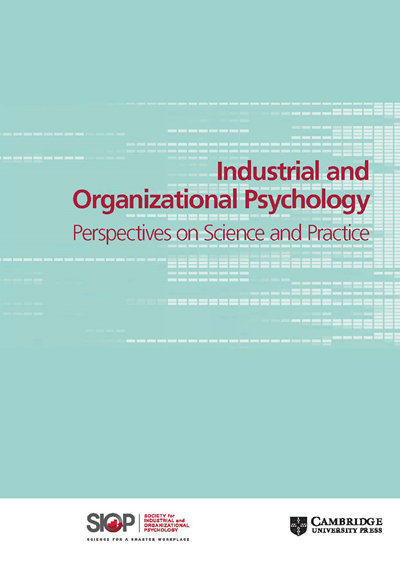开放科学是在奖励A的同时希望得到B吗?
IF 11.5
3区 心理学
Q1 PSYCHOLOGY, APPLIED
Industrial and Organizational Psychology-Perspectives on Science and Practice
Pub Date : 2022-12-01
DOI:10.1017/iop.2022.64
引用次数: 1
摘要
阅读Guzzo, Schneider和Nalbantian(2022)关于开放科学政策的意外后果的论文让我想起了Steven Kerr(1995)的经典论文《论奖励A的愚蠢,同时希望B》,他在文中指出,当我们试图影响行为时,我们往往没有考虑奖励系统。在我看来,这就是开放科学运动的情况。它对有问题的研究实践的解决方案是创建一个期刊政策系统,该系统关注的是研究人员的个人行为,而不是产生这种行为的奖励系统。它基于一个隐含的假设,即开放科学政策可以防止有问题的研究实践,甚至是彻头彻尾的研究欺诈。然而,如果不改革奖励结构,这样的结果是极不可能的。开放科学方法旨在减少两类行为:研究欺诈和有问题的研究实践。两者都是在一种制度下产生的,在这种制度下,职业成果是由在数量有限的独家学术机构发表的论文决定的。许多院系,尤其是商学院的院系,要求在一小部分精英“a”期刊上发表文章。正如Guzzo等人所指出的那样,这些期刊的要求非常狭窄,包括被数据证实的理论和假设。如果一篇论文的假设没有得到证实,那么它就很难(如果不是不可能的话)在学术就业市场上有竞争力,获得终身职位,并获得其他奖励(例如,经济奖金和减轻教学负担)。研究人员的职业奖励是基于在“正确”的地方发表论文。发表奖励(在顶级期刊上发表)不仅取决于理论、假设和证实,还取决于让审稿人相信所提交的文章做出了重大贡献。这不仅意味着填补了文学中的一些空白,而且在某种程度上被视为新颖。寻找看似违反直觉的结果可能是一个很好的新奇策略,但如果不使用一些研究技巧,它们很难实现。这种奖励结构——职业和出版成功所需要的——让研究人员承受着巨大的压力,要在一个残酷和竞争激烈的环境中生存下去,在这个环境中,顶级媒体的期刊接受率约为5%,作者必须在琐碎的问题上与审稿人进行多轮审查。那么多研究人员面临着要么玩弄体制,要么另辟蹊径的两难选择,我们应该感到惊讶吗?我发现自己怀疑对研究人员的一套新要求是否会产生不同的结果。本文章由计算机程序翻译,如有差异,请以英文原文为准。
Is open science rewarding A while hoping for B?
Reading Guzzo, Schneider, and Nalbantian’s (2022) paper on the unintended consequences of open science policies reminds me of the classic Steven Kerr (1995) paper “On the Folly of Rewarding A, While Hoping for B” in which he makes the point that often we fail to consider the reward systems when we attempt to influence behavior. Such is the case, it seems to me, with the open science movement. Its solution to questionable research practices is to create a system of journal policies that focuses on individual researcher behavior rather than the reward systems that produce it. It is based on an implicit assumption that open science policies prevent questionable research practices and even outright research fraud. Without reforming the reward structure, however, such an outcome is highly unlikely. There are two classes of behavior that open science approaches are designed to reduce: research fraud and questionable research practices. Both arise under a system in which career outcomes are determined by publication in a limited number of exclusive academic outlets. Many departments, particularly in business schools, require publication in a small list of elite “A” journals. Those journals have very narrow requirements that include, as Guzzo et al. note, theory and hypotheses that are confirmed by data. Failure to confirm hypotheses in a paper makes it difficult if not impossible to publish in the places that make one competitive on the academic job market, earn tenure, and reap other rewards (e.g., financial bonuses and reduced teaching loads). Researcher career rewards are based on publishing in the “right” places. Publication rewards (acceptance in top journals) are dependent on not only having theory, hypothesis, and confirmation, but also in convincing reviewers that a given submitted article makes a significant contribution. This means not only filling some perceived gap in the literature but being seen as novel in some way. Finding results that seem counterintuitive can be a good novelty strategy, but they are hard to realize without using a few research tricks. This reward structure—what it takes for career and publication success—puts researchers under tremendous pressure to survive professionally in a cut-throat and hypercompetitive environment where journal acceptance rates in top outlets are about 5%, and authors must fight reviewers over trivial issues through multiple rounds of review. Should we be surprised that so many researchers, facing the dilemma of either gaming the system or finding a different line of work, choose the questionable route? I find myself skeptical that a new set of requirements on researchers will produce a different result.
求助全文
通过发布文献求助,成功后即可免费获取论文全文。
去求助
来源期刊

Industrial and Organizational Psychology-Perspectives on Science and Practice
PSYCHOLOGY, APPLIED-
CiteScore
7.70
自引率
10.10%
发文量
85
期刊介绍:
Industrial and Organizational Psychology-Perspectives on Science and Practice is a peer-reviewed academic journal published on behalf of the Society for Industrial and Organizational Psychology. The journal focuses on interactive exchanges on topics of importance to the science and practice of the field. It features articles that present new ideas or different takes on existing ideas, stimulating dialogue about important issues in the field. Additionally, the journal is indexed and abstracted in Clarivate Analytics SSCI, Clarivate Analytics Web of Science, European Reference Index for the Humanities and Social Sciences (ERIH PLUS), ProQuest, PsycINFO, and Scopus.
 求助内容:
求助内容: 应助结果提醒方式:
应助结果提醒方式:


